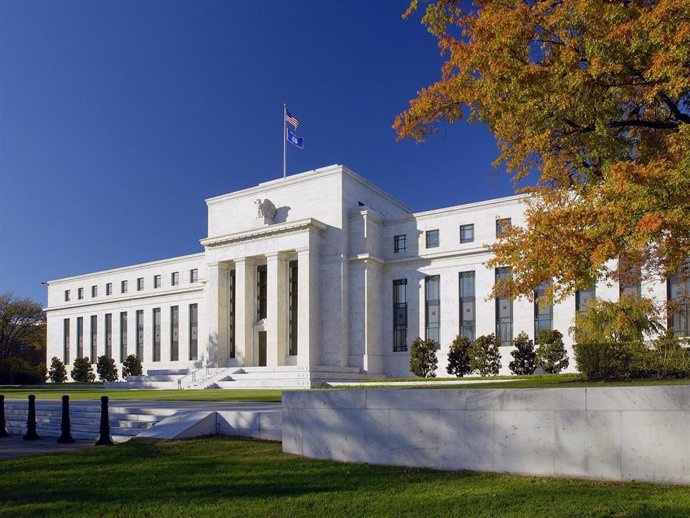MADRID, 10 Abr. (EUROPA PRESS) -
Some of the members that make up the Federal Open Market Committee (FOMC) of the United States Federal Reserve (Fed) were concerned about the possible entrenchment of inflation, although the majority of them stated that the cost of living will continue to slow down this year, according to the minutes of its last meeting in March.
All those responsible for the Fed's governing body reported on the "considerable progress" over the last twelve months in terms of inflation, even despite the rebound in January and February data. Still, others stressed that these increases had been "relatively widespread" and should not be considered "simple statistical anomalies."
However, the consensus within the institution was that inflation will converge with the 2% price stability objective in the medium term, with "almost all" FOMC members agreeing that it would be appropriate to modify the target downwards. price of money at some point this year if the economy performs as expected.
"In general, participants indicated that they remained very attentive to inflation risks, but that they had already anticipated that there would be some irregularity in the monthly inflation readings as it returned to the target," the published document stated.
The Fed decided at the end of March to maintain interest rates in the range of between 5.25% and 5.5% for the fifth consecutive meeting, the highest since January 2001. For his part, the president of the institution himself Jerome Powell has insisted on several occasions that more evidence that inflation is contained will be necessary before proceeding with rate cuts.
The FOMC also discussed plans to slow balance sheet reduction by "about half", a process known as 'quantitative tightening', although no decisions were made at the meeting.
Currently, the Fed reduces its balance sheet by reinvesting the principal of the debt that matures, except for 95,000 million dollars (88,458 million euros) each month between Treasury bonds and mortgage securities. Of these, 60,000 million dollars (55,869 million euros) correspond to Treasury bonds and another 35,000 million dollars (32,590 million euros) are mortgage-type bonds.
Most FOMC members believed the process was proceeding smoothly, although they "generally" estimated that a cautious approach to adjustment would be appropriate given the market turmoil in 2019, the last time the Fed attempted to limit its portfolio.
"The vast majority of participants judged that it would be prudent to begin slowing the rate of runoff very soon," the minutes explained.













